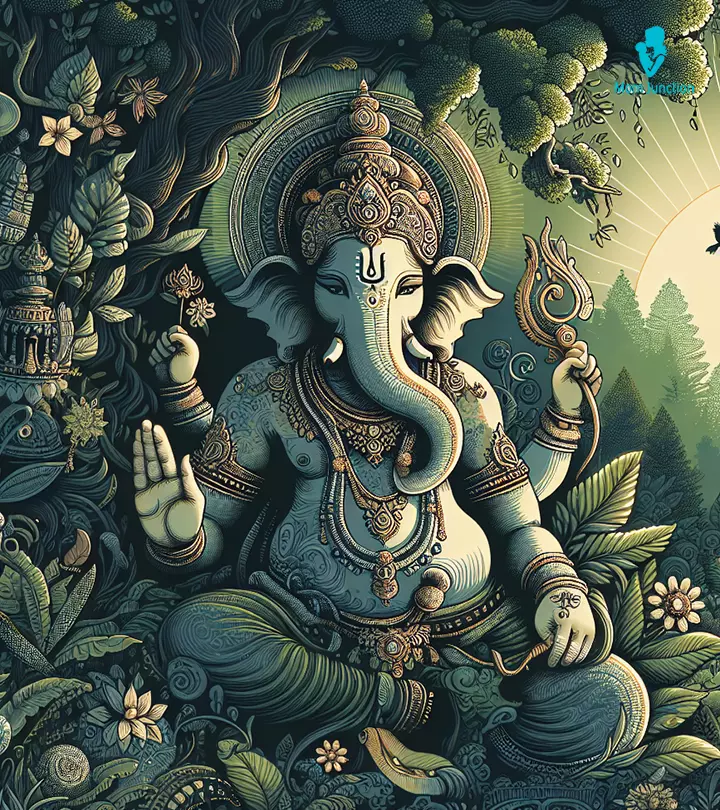Understanding the Pantheon of Hindu Deities: A Comprehensive Exploration
Hinduism is one of the oldest religions in the world, rich in history, philosophy, and a vibrant tapestry of deities. Unlike monotheistic religions, Hinduism is characterized by the worship of a multitude of deities, each representing different aspects of the divine and the universe. This plurality embodies the complex belief system that allows for a range of personal, societal, and cosmic expressions of divinity. Let’s explore some of the principal deities of Hinduism and the roles they play in the cosmic order.
1. Brahma: The Creator
Brahma is known as the creator of the universe and all living beings according to Hindu mythology. Although depicted with four heads symbolizing the four Vedas (Rig, Yajur, Sama, and Atharva), Brahma is not as widely worshipped as other deities. This is partly due to legends that suggest his creative role was completed after the creation of the world, relegating him to a background position. Brahma’s consort is Saraswati, the goddess of wisdom, music, and the arts, signifying the importance of knowledge and creativity in creation.
2. Vishnu: The Preserver
Vishnu, the preserver, maintains harmony and order in the universe. He is responsible for the protection of dharma (cosmic law and order) and frequently incarnates on earth in various forms, known as avatars, to restore it. The most revered avatars of Vishnu are Rama and Krishna. In his benevolent role, Vishnu is often worshipped alongside his consort, Lakshmi, the goddess of wealth and prosperity. Together, they symbolize the idea that preservation and well-being are fundamental to sustaining the universe.
3. Shiva: The Destroyer
Shiva, the destroyer and transformer, is one of the principal deities in Hinduism. He is perceived as a complex god who embodies both ascetic and householder aspects. Shiva’s destructive aspect is not seen as negative but rather necessary for creation and renewal. His consort, Parvati, complements his energy, and together they produce their offspring, including Ganesha and Kartikeya, who are worshipped with great devotion. Shiva is also known by various appellations such as Mahadeva, Shankara, and Nataraja, the lord of dance.
4. Devi: The Divine Mother
The goddess, known as Devi or Shakti, holds a prominent place in the Hindu pantheon as the ultimate divine force. She represents feminine energy and is worshipped in various forms such as Durga, Kali, and Parvati, each representing different aspects of power and protection. Devi is integral to Hinduism’s shakti tradition, which emphasizes the goddess as the supreme cosmic power. Her festivals, like Navratri and Durga Puja, are grandly celebrated, underscoring her significance in spiritual and cultural contexts.
5. Ganesha: The Remover of Obstacles
Ganesha, the elephant-headed god, is among the most cherished and widely worshipped deities in Hindu households. He is revered as the remover of obstacles, the patron of arts and sciences, and the god of wisdom and intellect. Ganesha’s unique form symbolizes the importance of integrating knowledge, intelligence, and the capability to overcome challenges. His birth and anecdotal tales are narrated in Hindu mythology, resonating with spiritual and moral teachings.
6. Saraswati: The Goddess of Knowledge
Saraswati, the goddess of learning, music, and art, is worshipped by students, artists, and educators. She embodies knowledge and the true wisdom that comes with learning. Depicted as a serene figure holding a veena (musical instrument), Saraswati rides a swan, symbolizing purity and transcendence. Her worship emphasizes the spiritual knowledge required for liberation and inner growth.
7. Lakshmi: The Goddess of Wealth
Lakshmi, the goddess of wealth and prosperity, is prayed to for fortune and well-being. Her energy is celebrated during festivals such as Diwali, where devotees light oil lamps to welcome her into their homes. Lakshmi symbolizes material and spiritual prosperity, underscoring the idea that wealth should support righteous living and spiritual growth.
8. Hanuman: The Devotee and Protector
Hanuman, the monkey god, is renowned for his unwavering devotion and service to Lord Rama. As a central figure in the epic Ramayana, Hanuman’s selfless service and strength exemplify the qualities of dedication and courage. He is worshipped as a symbol of strength, perseverance, and devotion, with numerous temples dedicated to his worship across India.
Conclusion
Hinduism’s vast collection of deities provides a rich and diverse framework through which adherents can engage with the divine. Each deity offers unique insights into the human condition and spiritual ideals, guiding devotees toward a holistic understanding of

